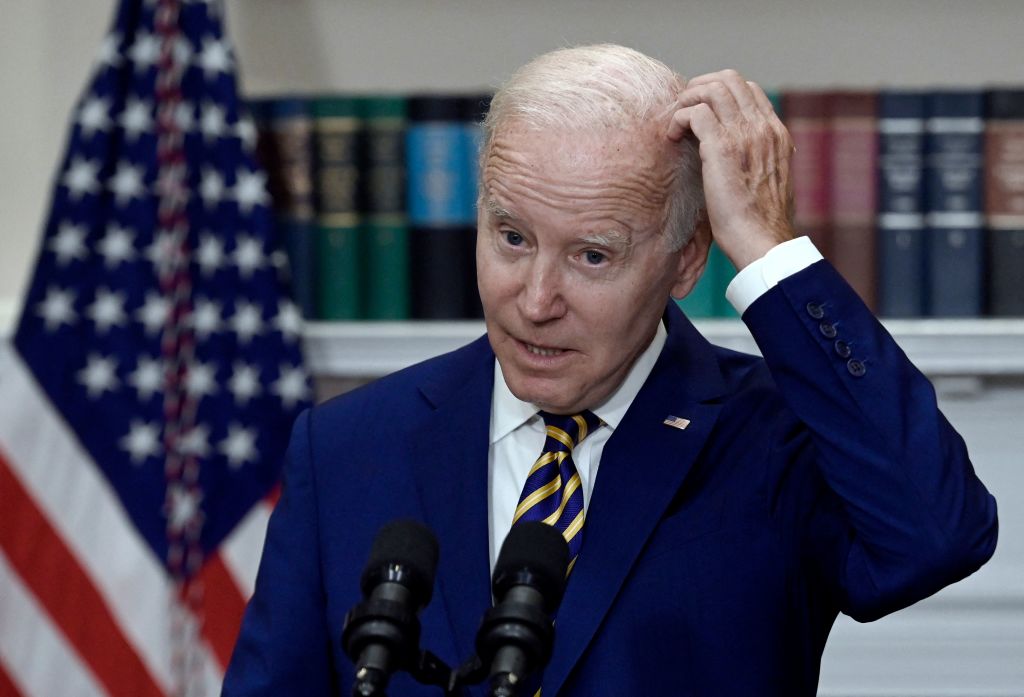The Harvard professor who headed the Council of Economic Advisers during the Obama administration torched President Joe Biden’s student loan debt cancellation on Wednesday, calling it “reckless.”
“Everyone else will pay for this either in the form of higher inflation or in higher taxes or lower benefits in the future,” Jason Furman tweeted as part of a long thread on the subject.
Biden announced Wednesday that Pell Grant recipients with loans held by the Department of Education are eligible for $20,000 in student loan debt cancellation, while non-Pell recipients could get $10,000 of their debt canceled.
Anyone with an income of less than $125,000 a year is eligible.
Biden further said that the pause on repayment has been extended through Dec. 31.
Furman exploded about the move in a series of tweets.
“Pouring roughly half trillion dollars of gasoline on the inflationary fire that is already burning is reckless. Doing it while going well beyond one campaign promise ($10K of student loan relief) and breaking another (all proposals paid for) is even worse,” he wrote.
“The White House fact sheet has sympathetic examples about a construction worker making $38K and a married nurse making $77,000 a year. But then why design a policy that would provide up to $40,000 to a married couple making $249,000? Why include law and business school students?”
The White House fact sheet has sympathetic examples about a construction worker making $38K and a married nurse making $77,000 a year.
But then why design a policy that would provide up to $40,000 to a married couple making $249,000? Why include law and business school students? pic.twitter.com/463YMmCT9g
— Jason Furman (@jasonfurman) August 24, 2022
“Those examples also contradict the baseline some have concocted to claim that this won’t raise inflation. The claim it won’t raise inflation is based on the construction worker going from permanently paying $0 interest to paying $31 a month at an annual cost of $372,” Furman continued.
Furman said the White House is defying rationality in touting the plan.
“You can’t use one baseline (interest payments suspended) to argue this will constrain demand & then a different baseline (interest payments restored) to describe the benefits. That is incoherent, inconsistent & indefensible cherry picking–I hope the White House doesn’t do it,” he wrote.
You can’t use one baseline (interest payments suspended) to argue this will constrain demand & then a different baseline (interest payments restored) to describe the benefits. That is incoherent, inconsistent & indefensible cherry picking–I hope the White House doesn’t do it.
— Jason Furman (@jasonfurman) August 24, 2022
“There are a number of other highly problematic impacts including encouraging higher tuition in the future, encouraging more borrowing, creating expectations of future debt forgiveness, and more,” he added.
Most importantly, everyone else will pay for this either in the form of higher inflation or in higher taxes or lower benefits in the future. I did a thread on this last night but given the new announcement you need to double everything in it. https://t.co/CJ7aPYyAw3
— Jason Furman (@jasonfurman) August 24, 2022
Furman also said it wasn’t clear to him that the president has the power to unilaterally forgive student loan debt.
“Even if technically legal I don’t like this amount of unilateral Presidential power,” he wrote.
Finally, it’s not obvious to me that this is reasonable for a President to do unilaterally. A number of lawyers (and political leaders) have argued inconsistent with the law. Even if technically legal I don’t like this amount of unilateral Presidential power.
— Jason Furman (@jasonfurman) August 24, 2022
Even before the plan was announced, former Treasury Secretary Lawrence Summers had opposed the idea on Twitter.
“Every dollar spent on student loan relief is a dollar that could have gone to support those who don’t get the opportunity to go to college,” he wrote on Monday.
“Student loan debt relief is spending that raises demand and increases inflation. It consumes resources that could be better used helping those who did not, for whatever reason, have the chance to attend college. It will also tend to be inflationary by raising tuitions.”
This article appeared originally on The Western Journal.















 Continue with Google
Continue with Google